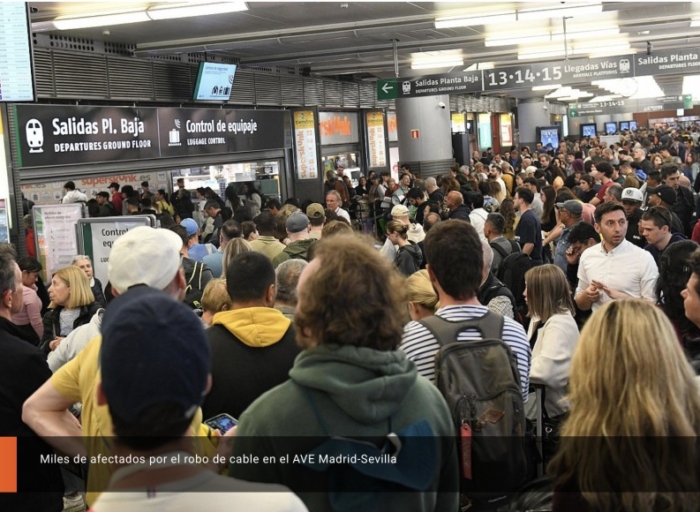Full List of Foods British Tourists Are Banned from Bringing Back from the EU
British holidaymakers could face fines of up to £5,000 if they return from the EU with banned food items, as the UK government introduces new measures to curb the spread of foot and mouth disease (FMD).
A recent warning issued ahead of the Easter travel rush reminds travellers that bringing meat or dairy products back into the UK is now prohibited. This includes popular items such as pork, beef, butter, cheese, and cured meats.
Even seemingly harmless foods like sandwiches, milk, or packaged cheeses are not exempt—regardless of whether they were purchased in duty-free shops or sealed by the manufacturer.
The temporary ban follows a rise in FMD cases across Europe and aims to protect UK livestock and agriculture from potential outbreaks.
🚨 Important changes to personal imports 🧀 🥩
You can no longer bring meat or dairy products from EU or EEA countries into Great Britain for personal use.
This includes beef, pork, lamb, mutton, venison and goat meat, and all dairy products like cheese, butter or yoghurt.
While the disease doesn’t pose a risk to humans and there are no cases currently in the UK, it is a highly contagious viral disease that affects cattle, sheep, pigs and other cloven-hoofed animals such as wild boar, deer, llamas and alpacas.
Because of this, the outbreak on the continent presents a significant risk to animals, farms and livestock.
The government said in the most “serious” cases, holidaymakers face fines of up to £5,000 if they are caught with any banned items in England.
Here’s the full list of the banned and accepted items, as well as what countries are outside of the restrictions.
What is banned?
The full list of banned products is:
- pork
- beef
- lamb
- mutton
- goat
- venison
- other products made from these meats, for example sausages
- milk and dairy products like butter, cheese and yoghurt
- pet food made with banned meat products
You can bring these items into the country:
- bread, but not sandwiches filled with meat or dairy products
- cakes without fresh cream
- biscuits
- chocolate and confectionery, but not those made with a lot of unprocessed dairy ingredients
- pasta and noodles, but not if mixed or filled with meat or meat products
- packaged soup, stocks and flavourings
- processed and packaged plant products, such as packaged salads and frozen plant material
- food supplements containing small amounts of an animal product, such as fish oil capsules
What happens if I bring banned food back into the country?
If you declare banned food products to Border Force officers at customs, they’ll take them away and destroy them.
“Those found with these items will need to either surrender them at the border or will have them seized and destroyed,” the Department for Environment, Food and Rural Affairs told Yahoo News.
“In serious cases, those found with these items run the risk of incurring fines of up to £5,000 in England. The ban will remain under review depending on the disease picture.”
Border Force can take away (“seize”) your products if they think:
- You’ve brought something into the country illegally
- You’ve brought in too much of a restricted product
- It’s been cross-contaminated, for example with blood from meat – if any clothing or a bag the item’s in is contaminated, it’ll be destroyed
Risk of foot and mouth disease
The measures are being put in place to prevent the spread of food and mouth disease in the UK.
The government has already banned personal imports of cattle, sheep and pig meat as well as dairy products, from Germany, Hungary, Slovakia and Austria.
On Tuesday, Germany was certified as free of foot-and-mouth disease by the World Organization for Animal Health, four months after announcing an outbreak in a herd of water buffalo on the outskirts of Berlin on 10 January.
Hungary reported a first case in over 50 years on a cattle farm near the border with Austria and Slovakia in March.
The last outbreak in the UK was 2007, but the largest was in 2001, when a devastating outbreak led to the culling of more than six million animals and resulted in over 2,000 cases.
An outbreak of the disease would require complete eradication and the country could risk losing its ability to export produce abroad for years.
The estimated cost of the 2001 outbreak for the UK public and private sector was around £8bn, equivalent to £14.7bn today, according to the National Audit Office.
Earlier this month, the government was warned that a lack of funding, basic biosecurity measures and resources for research centres was putting the UK at risk of disease outbreaks.
Tom Bradshaw, president of the National Farmers’ Union, said that “the cost of that is simply unthinkable with the finances of the country as they are today”.
The new restrictions apply only to travellers arriving in the UK, and will not be imposed on personal imports arriving from Northern Ireland, Jersey, Guernsey, or the Isle of Man.



